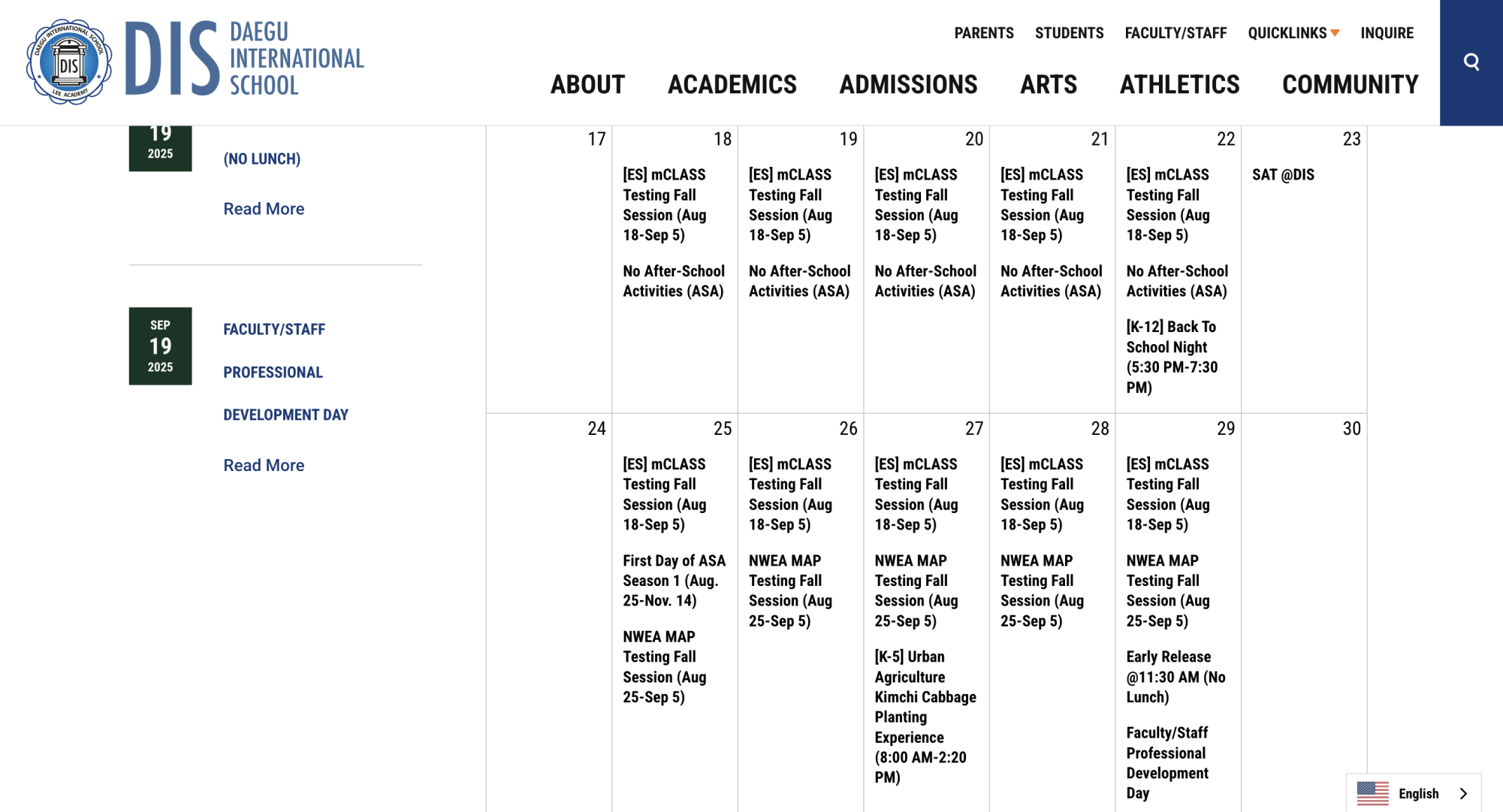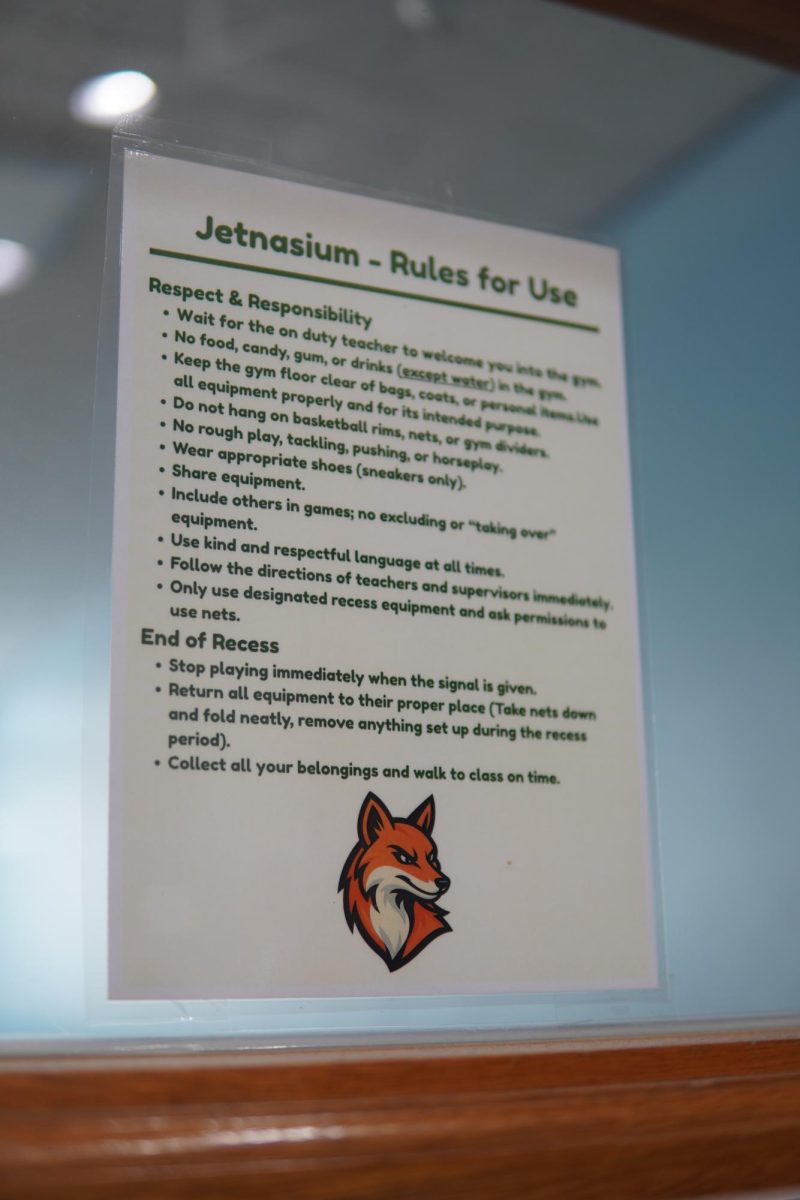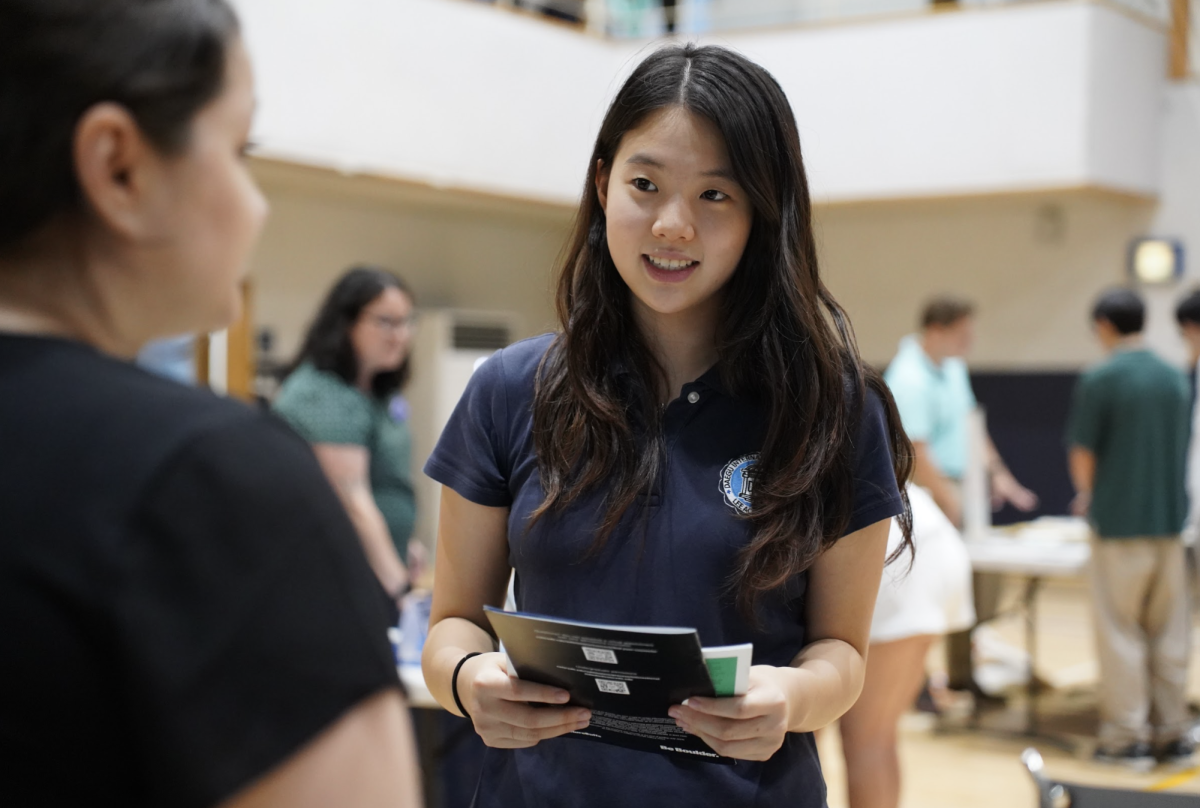Elementary homeroom teachers rolled out a new preliminary assessment for students known as mCLASS in August. Kindergarten through upper elementary classrooms will utilize the test again later in the year.
With a focus on literacy, mCLASS data informs pedagogical and curriculum design for elementary educators. Teachers then use the results to acquire an accurate picture of baseline skills, but off-campus preparatory work at academies or hagwons skews results.
As part of its assessment framework, the parent company licenses mCLASS to DIS. “mCLASS is a screening tool that we use for our students that measures how they are developing as readers. It helps us check how well they are recognizing sounds, reading words, and understanding what they are reading,” second grade teacher Mrs. Kaschub said. mCLASS assesses phonemic awareness, letter matching, pronunciation, and, with higher grade levels, it evaluates more complex literacy material.
Mrs. Vis, teaching and learning director, curated the new appraisal tool. “At our school, we administer this assessment to kindergarten through grade five, all students. They take it three times per year.” The test allows teachers to look at multiple aspects of the students’ literacy development and skillset, which helps teachers find gaps in knowledge and pinpoint consistent growth over the years.
Along with general testing, proctors set a comfortable environment for students to perform at their maximum. “Generally, these tests are conducted one-on-one between the homeroom teacher and the student for five to eight minutes. It’s not very long. Usually, they’re using a device so the teacher will have an iPad screen with the test on it,” Mrs. Vis said.
But alongside the benefits of mCLASS assessments, a common concern surfaced among faculty. Mr. Vis, elementary principal, said, “While teachers were administering the mCLASS assessment, some students commented that they had already done that same assessment before in their academies.”

(Jio Kim)
Poor test results have become increasingly stigmatized in Asia. As a result, families desire to outdo the competition. International teachers grew increasingly wary of these methods due to years of experience in Korea. Mrs. Kaschub said, “It can be challenging if the scores don’t reflect the students’ actual abilities. It just makes the test invalid sometimes because they’ve already seen those measures so they practice them maybe or memorize them.”
Consequently, test results paint inaccurate pictures of student skills due to early exposure and repeated practice. Teachers then struggle to design plans that can truly support next steps and areas of growth.
First grade teacher, Ms. Downie, said, “This [mCLASS results] lets us know what the students need more help with. [But] if they are just simply coached in that area, then they might still have a deficit in that area that needs to be addressed, and it will be overlooked because they were just taught to say an answer.”
As time passed, the shift in culture became more apparent for teachers. “I think in this small community, the competitiveness is becoming a bit toxic and unhelpful… The best thing is for them to learn how to learn rather than focus on just getting a number, a numeric grade,” Ms. Downie said.
Educators acknowledge parents’ wish for their child’s success but stress that the test identifies literacy gaps, not grades. The new Parent Pathway sessions aim to improve communication and interaction.
With the implementation of communicative programs, Mrs. Vis said, “ I really hope that through these Parent Pathway sessions and through just ongoing communication between the school and the parent community, that we can all develop a shared understanding of the role assessment plays in the school and how teachers are using different assessment tools to support their kids.”
In the end, mCLASS focuses not on test scores but on building a strong literacy foundation. At the same time, DIS administrators plan to continue Parent Pathways meetings to foster an environment where students grow into confident scholars. “I hope that in the future we find solutions to the problems that plague our education today. I hope that students are less stressed, and I hope that the parents can become more understanding,” Ms. Downie said.




















































madison chae • Oct 16, 2025 at 7:27 pm
loving it !!
Allison Lee • Oct 1, 2025 at 7:27 pm
mCLASS is so boring lol